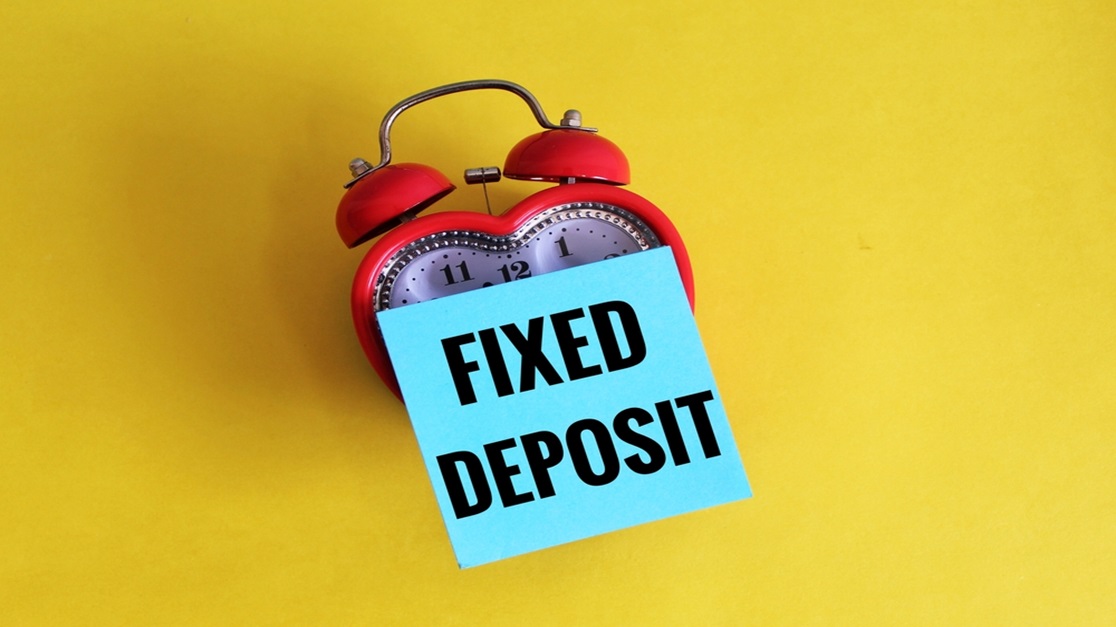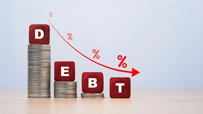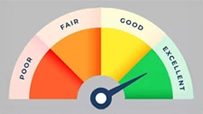How Much FD Returns Would You Get If You Invest ₹1 Lakh for 1 Year?
Disclaimer: This blog is generic in nature and should be used for generic information only. Please use our FD Calculator to check your returns.
September 03, 2025

Fixed Deposits (FDs) are one of the safest and most predictable investment options in India. Whether you are a risk-averse investor or simply looking for stable returns, an FD offers security along with assured earnings. If you are considering investing ₹1 lakh in a 1-year FD, let’s break down how much you will earn by the end of the tenure.
Understanding FD Interest Calculation
FD interest can be calculated using two methods:
- Simple Interest (SI): Interest is calculated only on the principal amount. Formula: SI = (P × R × T) / 100
- Compound Interest (CI): Interest is calculated on both the principal and previously earned interest. Formula: A = P (1 + r/n)^(n*t), where A = Maturity Amount, P = Principal (₹1,00,000 in this case), r = Annual Interest Rate (Example: 7.90% or 0.079), n = Number of compounding periods per year (compounded quarterly means 4), t = Tenure in years
Returns on ₹1 Lakh in a 1-Year FD
Let's analyse both simple and compound interest scenarios. For your understanding, we have kept the FD interest rate at 7.90%, which is the FD rate Ujjivan offers for 12-month FD (as on 24 April 2025). For latest FD rates, click here.
1. Simple Interest Calculation
Using the SI formula:
- SI = (1,00,000 × 7.90 × 1) / 100
- SI = ₹7,900
At the end of 1 year, your total amount will be:
- Maturity Amount = ₹1,00,000 + ₹7,900 = ₹1,07,900
2. Compound Interest Calculation (Quarterly Compounded)
Most banks compound interest quarterly, i.e., n = 4. Using the CI formula:
- A = 1,00,000 (1 + 0.01975/4)^(4×1)
- A = 1,00,000 × (1.01975)^4
- A ≈ 1,08,103.
Your maturity amount with quarterly compounding will be ₹1,08,103 meaning you will earn an interest of ₹8,103.
Disclaimer: The above example is for illustration purpose only. Ujjivan SFB does not take any responsibility for the accuracy of the information. Please use a Fixed Deposit Returns Calculator or consult with a financial expert for better understanding.
Comparison of Returns: Simple vs. Compound Interest
| Interest Type | Interest Earned | Maturity Amount |
| Simple Interest | ₹7,950 | ₹1,07,900 |
| Compound Interest (Quarterly) | ₹8,103 | ₹1,08,103 |
Benefits of Investing in Fixed Deposits (FDs)
FDs offer several advantages that make them an attractive investment option:
1. Higher and Guaranteed Returns
It’s a myth that FD offers lower rates. If you invest in Ujjivan FD, you can earn up to 7.45% p.a.* Ujjivan offers one of the best FD rates and multiple products tailored for your financial goals. Also, unlike stocks or mutual funds, FD returns are fixed and unaffected by market fluctuations, ensuring stable earnings. *T&C apply.
2. Low-Risk Investment
FDs are one of the safest investment options, making them ideal for risk-averse individuals looking for capital protection.
3. Flexible Tenure
Banks offer FD tenures ranging from 7 days to 10 years, allowing you to choose based on your financial goals.
4. Liquidity Through Premature Withdrawal or Loans
- You can prematurely withdraw an FD in case of emergencies (with a minor penalty).
- You can also avail loans against FDs at lower interest rates, avoiding the need for high-interest personal loans.
5. Higher Interest Rates for Senior Citizens
Ujjivan offers additional 0.50% interest for senior citizens, making FDs even more rewarding for retirees.
6. Tax Benefits on Special FDs
- Tax-Saver FDs (5-year lock-in) provide tax deductions under Section 80C (up to ₹1.5 lakh per year).
7. Easy and Hassle-Free Investment
- Opening an FD is quick and straightforward, with online and offline options.
Tax Implications on FD Interest
- The interest earned on FDs is taxable as per your income tax slab.
- If your total interest exceeds ₹40,000 (₹50,000 for senior citizens) in a financial year, TDS (Tax Deducted at Source) at 10% is deducted by the bank (20% if PAN is not provided). Please note that this TDS exemption limit is valid only till March 2025. For FY 2025-26, the exemption limit has been extended to ₹50,000 for regular citizens and ₹1 lakh for senior citizens. This makes FDs more attractive as a long-term investment instrument.
- You can submit Form 15G (for non-senior citizens) or 15H (for senior citizens) to avoid TDS if your total taxable income is below the exemption limit.
Final Thoughts
A 1-year FD at 7.90% interest on ₹1 lakh can yield up to ₹8,103 (with quarterly compounding). This makes it a secure and rewarding option for those seeking fixed returns without market risks. While the returns are guaranteed, do keep in mind the tax implications and consider reinvesting for long-term wealth growth.
Looking to grow your savings faster? Ujjivan SFB offers a wide range of fixed deposit products. Select the FD of your choice and take a step forward to your financial goals. Alternatively, you can browse through Ujjivan SFB product suite - our wide range of financial products are designed to make your financial life better.
Disclaimer:
The contents herein are only for informational purposes and generic in nature. The content does not amount to an offer, invitation or solicitation of any kind to buy or sell, and are not intended to create any legal rights or obligations. This information is subject to updation, completion, amendment and verification without notice. The contents herein are also subject to other product-specific terms and conditions, as well as any applicable third-party terms and conditions, for which Ujjivan Small Finance Bank assumes no responsibility or liability.
Nothing contained herein is intended to constitute financial, investment, legal, tax, or any other professional advice or opinion. Please obtain professional advice before making investment or any other decisions. Any investment decisions that may be made by the you shall be at your own sole discretion, independent analysis and evaluation of the risks involved. The use of any information set out in this document is entirely at the user’s own risk. Ujjivan Small Finance Bank Limited makes no representation or warranty, express or implied, as to the accuracy and completeness for any information herein. The Bank disclaims any and all liability for any loss or damage (direct, indirect, consequential, or otherwise) incurred by you due to use of or due to investment, product application decisions made by you on the basis of the contents herein. While the information is prepared in good faith from sources deemed reliable (including public sources), the Bank disclaims any liability with respect to accuracy of information or any error or omission or any loss or damage incurred by anyone in reliance on the contents herein, in any manner whatsoever.
To know more about Ujjivan Small Finance Bank Products Visit:"https://www.ujjivansfb.in"
All intellectual property rights, including copyrights, trademarks, and other proprietary rights, pertaining to the content and materials displayed herein, belong
to Ujjivan Small Finance Bank Limited or its licensors. Unauthorised use or misuse of any intellectual property, or other content displayed herein is strictly prohibited and the same is not intended for distribution to, or use by, any person in any jurisdiction where such distribution or use would (by reason of that person’s nationality, residence or otherwise) be contrary to law or registration or would subject Ujjivan Small Finance Bank Limited or its affiliates to any licensing or registration requirements.
FAQs
1. What is the difference between simple and compound interest in FDs?
Simple interest is calculated only on the principal amount, while compound interest is calculated on both the principal and accumulated interest. Compounded interest results in higher earnings over time.
2. Can I avoid TDS on my FD returns?
Yes, if your total income is below the taxable limit, you can submit Form 15G (for individuals) or Form 15H (for senior citizens) to avoid TDS deductions.
3. Will I get higher returns if I choose monthly interest pay-outs?
No, monthly interest pay-outs are beneficial for regular income, but they result in slightly lower overall returns compared to compounding options, as interest is not reinvested.
4. Is it better to invest in multiple short-term FDs or one long-term FD?
If you need liquidity, multiple short-term FDs allow you to access funds periodically. However, long-term FDs offer higher interest rates and better compounding benefits.
5. How do banks determine FD interest rates?
Banks set FD rates based on RBI policies, repo rates, inflation, and overall economic conditions. Senior citizens typically get 0.5% higher interest than regular customers.
6. Can I take a loan against my FD?
Yes, most banks allow you to take a loan or overdraft against your FD at 1-2% higher interest than the FD rate. This is a good option if you need funds without breaking your FD.
7. How do I choose the best bank for opening an FD?
Compare interest rates, compounding frequency, premature withdrawal policies, and additional benefits (like loans against FD) before selecting a bank for your FD investment. Just so you know, Ujjivan offers high-interest FDs tailored for your financial goals.
8. What happens to my FD if I don’t withdraw after maturity?
If you don’t withdraw your FD amount after maturity, banks may automatically renew it at the prevailing interest rate or transfer the amount to your linked savings account.
Latest Blogs

APK Fraud: How One Wrong Download Could Empty Your Bank Account
May 13, 2025
Picture this. You’re sipping your evening tea when your phone rings.

Gold Loan LTV Ratio Explained (75% to 85%): What It Means for Borrowers
March 20, 2025
In June 2025, the Reserve Bank of India (RBI) introduced a significant relaxation for gold loan borrowers: the maximum Loan-to-Value (LTV) ratio for loans below ₹2.5 lakh was raised to 85%, up from the long-standing cap of 75%. Loans between ₹2.5 lakh and ₹5 lakh can now go up to 80%, while loans above ₹5 lakh continue under the 75% ceiling.

Good Debt vs Bad Debt: Learn the Difference
August 13, 2025
Every month, millions of Indians wait for the familiar debit alert, an EMI deducted from their account.

Got a Tax Refund? 5 Smart Ways to Put Your 2025 Refund to Work
August 13, 2025
For many taxpayers, there’s a unique sense of relief when a tax refund arrives.

Credit Score Not Improving? 5 Mistakes You Might Be Making
August 13, 2025
For most of us, a credit score feels like a silent judge sitting in the background of our financial lives.





